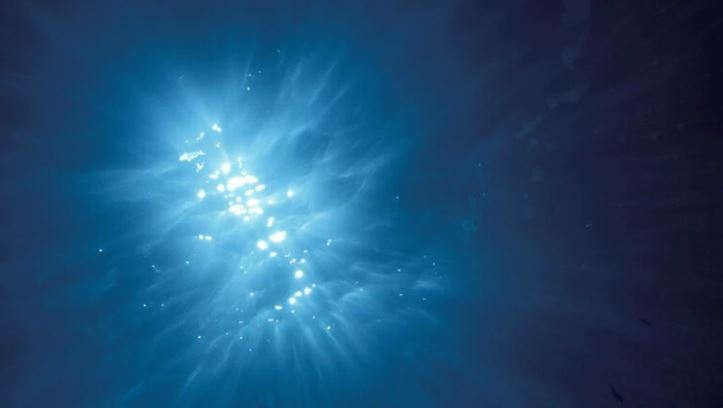


 12:11:50
12:11:50  2023-07-20
2023-07-20  1255
1255

The discovery of an ancient underwater volcano that is still active and covered with unknown eggs
Scientists exploring an ancient underwater volcano off the Pacific coast of Canada found it still active and "covered" with thousands of giant eggs.
Scientists have found the first evidence ever of a relatively unknown sea creature laying its eggs on top of an active volcano.
Prior to the expedition, the team thought the volcano was extinct and the surrounding waters were frozen. However, they found the underwater mountain, which is 1,100 meters above the sea floor, spewing warm waters and covered with coral reefs in the deep sea.
The hot, mineral-rich liquid keeps the surrounding water warm, providing ideal conditions for some marine organisms to survive in the deep sea.
Scientists were even more surprised to see the Pacific white skate (Bathyraja spinosissima) laying eggs on top, about 1.5 km below the surface.
"It's a really special place," said Cherisee Du Preez, a deep-sea marine biologist with Fisheries and Oceans Canada and the expedition's principal investigator. "The only previous discovery of a Pacific white skate breeding site was in the Galapagos, and I think it was in the order of a dozen or two eggs."
Du Preez added that the size of the recently found skate nursery is many times larger than that. "I estimate that the top of the seamount, which was covered in white, had 100,000 or a million," she said. She indicated that these eggs were large in size and about 0.5 meters wide.
A video of the expedition showed that the scientists were also the first to record footage of a Pacific white skate laying eggs.
Pacific white skates are little-known marine creatures and are among the deepest-dwelling skate species, inhabiting depths ranging from 800 to 2,900 meters off the west coast of North and Central America, according to the IUCN Red List.
Du Preez said the adult females, which can reach two meters in length, lay oblong eggs, which are known as "mermaid bags" because they look like little bags.
And in 2018, scientists discovered many of these ravioli-shaped eggs near hydrothermal vents near the Galapagos Islands, suggesting that brood skates took advantage of the volcanic warmth to incubate their eggs. Du Preez said the new observations point to the same conclusion.
"It takes four years for the young to develop. Warm water probably speeds up the gestation period. The shallow summit of the seamount is almost a coral garden and a safe nursery for the young species of skate to grow before descending into the depths."
Scientists will continue to monitor the egg-covered seamount, which is not currently protected and may be threatened by fishing activities.
Reality Of Islam |
|

Labor short

A new ultra

Batteries p
 9:3:43
9:3:43
 2018-11-05
2018-11-05
10 benefits of Marriage in Islam
 7:5:22
7:5:22
 2019-04-08
2019-04-08
benefits of reciting surat yunus, hud &
 9:45:7
9:45:7
 2018-12-24
2018-12-24
advantages & disadvantages of divorce
 11:35:12
11:35:12
 2018-06-10
2018-06-10
 6:0:51
6:0:51
 2018-10-16
2018-10-16
 2:13:43
2:13:43
 2022-05-27
2022-05-27
 9:39:36
9:39:36
 2022-12-28
2022-12-28
a hero waters thirsty wild animals
 9:4:9
9:4:9
 2022-01-06
2022-01-06
 7:6:7
7:6:7
 2022-03-21
2022-03-21
 8:15:37
8:15:37
 2023-02-16
2023-02-16
bahlool & the throne of haroun rashid
 8:20:35
8:20:35
 2018-06-21
2018-06-21
 3:43:50
3:43:50
 2022-11-05
2022-11-05
 5:41:46
5:41:46
 2023-03-18
2023-03-18
| LATEST |